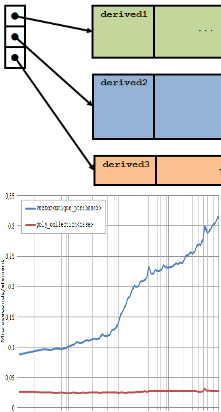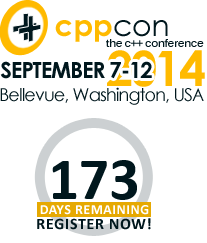Fast Polymorphic Collections -- Joaquín M López Muñoz

Fast Polymorphic Collections
by Joaquín M López Muñoz
From the article:
poly_collectionbehaves excellently and is virtually not affected by the size of the container. For n < 105, the differences in performance betweenpoly_collectionand a std::vector ofstd::unique_ptrs are due to worse virtual call branch prediction in the latter case; whenn > 105, massive cache misses are added to the first degrading factor.

 Some high-performance techniques that you an use for more than just parsing, including this week's darling of memory management:
Some high-performance techniques that you an use for more than just parsing, including this week's darling of memory management: This C++ optimization talk is one of the highest-rated talks from last week's
This C++ optimization talk is one of the highest-rated talks from last week's  The STE||AR Group has released V0.9.8 of HPX -- A general purpose parallel C++ runtime system for applications of any scale.
The STE||AR Group has released V0.9.8 of HPX -- A general purpose parallel C++ runtime system for applications of any scale.

 A nice short overview of when you might want your associative container to use a contiguous implementation instead of a tree under the covers:
A nice short overview of when you might want your associative container to use a contiguous implementation instead of a tree under the covers: